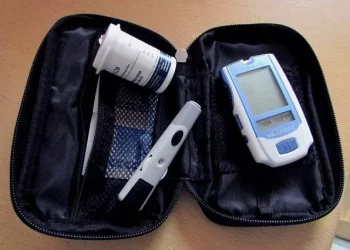Breakthrough T1D has announced a new Request for Applications (RFA) aimed at enhancing the genetic risk assessment of type 1 diabetes (T1D), with a strong emphasis on improving predictive accuracy across diverse ancestral populations and advancing the development of genetic risk scores (GRS) for real-world clinical application.
The initiative invites innovative proposals focused on refining genetic prediction tools that can better detect, classify, and potentially prevent T1D. Up to $900,000 in funding over a maximum period of three years is available for selected projects, open to both non-profit and for-profit institutions globally.
Key Research Priorities
Applicants are encouraged to address one or more of the following research priorities:
Genetic Insights Across Populations: Identification of causal genetic variants, including HLA-associated and other risk loci, especially in individuals of non-European ancestry and adults with late-onset T1D.
Development of Advanced GRS Tools: Construction of a more predictive, trans-ancestry GRS using sophisticated analytical models and interpretable artificial intelligence (AI) methodologies, with an emphasis on improved and standardized reporting practices.
Pathways to Clinical Validation: Refinement of array-based and sequencing-based risk scores to support regulatory submissions such as the U.S. FDA’s 510(k) clearance process.
Combined Risk Assessment: Evaluation of integrated risk scores for T1D and type 2 diabetes (T2D) to enhance diagnostic precision and disease differentiation, drawing on established T2D GRS frameworks.
Screening Program Implementation: Launch or evaluation of programs using T1D GRS as a substitute for autoantibody-based testing.
Use of Existing Cohorts: Only studies leveraging data from existing biobanks, repositories, or defined cohorts will be eligible. New participant recruitment is not supported under this call.
T2D GRS Development or Validation: While the primary focus is on T1D, the RFA also supports work related to T2D genetic risk scoring.
Funding and Eligibility
Each selected project may receive up to $900,000 in grant funding across a maximum term of three years. Eligible applicants include:
Domestic and international universities, hospitals, laboratories, and governmental research units.
Researchers holding advanced degrees (M.D., D.V.M., D.M.D., Ph.D. or equivalent) with a faculty-level or equivalent position.
For-profit organizations, as well as industry-academic partnerships.
Clinical investigators must hold a relevant appointment in a medical subspecialty and be engaged in human research.
There are no restrictions based on citizenship. Breakthrough T1D encourages submissions from individuals of all backgrounds, especially women, individuals with disabilities, and members of groups historically underrepresented in the sciences.
Related topics:
How Often Should a Person with Type 2 Diabetes Eat?



























